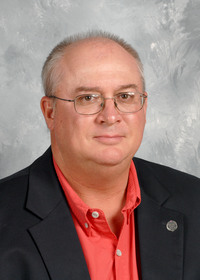Information Possibly Outdated
The information presented on this page was originally released on May 17, 1999. It may not be outdated, but please search our site for more current information. If you plan to quote or reference this information in a publication, please check with the Extension specialist or author before proceeding.
MSU Research Helps Limit Roadside Weeds
By Rebekah Ray
MISSISSIPPI STATE -- The Mississippi Agricultural and Forestry Experiment Station is making the state's roadsides its lab as it studies weed control.
Dr. Euel Coats, MAFES weed scientist, said test sites are located across the state to research vegetative management for the Mississippi Department of Transportation.
"We test herbicides at these sites to help MDOT engineers know the effectiveness of products," Coats said.
Results of the right of way research have led to lower levels of pesticide usage and the development of less detrimental methods of controlling weeds. These results have meant substantial savings on chemical treatments for Mississippi roadsides.
Jim Taylor, MAFES research assistant, said the Experiment Station works closely with chemical companies like Monsanto to develop and market pesticides.
"Our approach is a model other states look at and emulate," Taylor said.
Herbicides are tested on small plots about 1,000 feet wide and about 100 feet off of the road. Plots are divided into 24 test strips that run from the road to the fence. Each strip receives a different treatment.
MAFES right of way research has been funded since 1990. Earlier weed treatment programs were not very effective in controlling vegetation. Now researchers apply herbicides when weeds are small and germinating, and fewer chemicals are required for control.
Researchers conduct between 15 and 20 experiments around the state each year. MDOT funds part of the $300,000 research.
"We use information from MAFES to establish proper application rates of fertilizer and to know what products to best control vegetation. MAFES also trains our employees about application rates and how to obtain those rates," said John Vance, state maintenance engineer with the MDOT.
Contact: Dr. Euel Coats, (662) 325-0650


